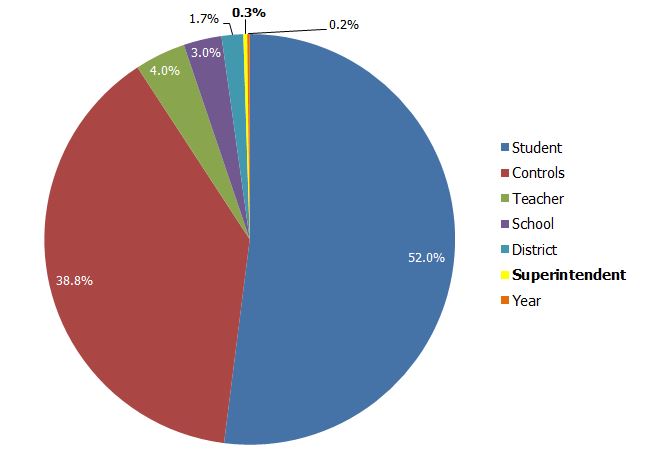
Reposted from EdSource:
The California State Board of Education is seizing the chance to redefine student achievement and reframe how schools are held accountable for performance. It is in the throes of replacing the Academic Performance Index (API), the three-digit number that has been California’s narrow gauge of school progress for a decade and a half. The question is, what will take its place? Fully rolling out a new accountability system is projected to take three years – there is no legislated deadline. But state board members and others who have shared their thoughts have expressed similar concepts of what it might – and should not – be. There is near-universal agreement among educators and policy makers that a new system should be distinctly different from the API, which is calculated by weighting school and district scores on various subject assessments. Instead of a single number with consequences tied to end-of-year standardized tests, there should be multidimensional measures reflecting the complexities of school life and performance, including potentially hard-to-quantify indicators of school climate, as well as test scores and indicators of success in preparing students for college and career options. State board President Michael Kirst uses the analogy of gauges on a car dashboard that display oil pressure, temperature, battery capacity and mileage, each measuring different components of a car’s performance.
Although there are shades of difference, state board members and educators generally agree that school improvement should be the overriding goal of a new accountability system and that schools and districts should be given time and flexibility to achieve specific and clear goals. This approach would contrast with a decade of top-down sanctions under the federal No Child Left Behind law, said Rick Simpson, deputy chief of staff for Assembly Speaker Toni Atkins and education adviser to a half-dozen Assembly speakers. “As a state, we kind of reached the consensus that the mechanisms of intervention and punishment were not effective tools for changing behavior,” he said.
A new accountability system would culminate a series of historic changes that are already reshaping K-12 education in California. These started with the shift of authority and responsibility over budgets and policy from the state to local school districts under a new funding system that directed more money to low-income children and students learning English. The funding law established Local Control and Accountability Plans, or LCAPs, that require districts to set goals and steer money to meet broader indicators of school performance than test scores alone can provide. New academic standards – the Common Core State Standards and Next Generation Science Standards – have raised expectations and shifted attention to the complex challenges of preparing students to succeed beyond high school. “A new accountability system must tie these big educational shifts together,” says Jannelle Kubinec, who directs the Comprehensive School Assistance Program for the San Francisco-based research agency WestEd and also is leading outreach efforts for the state board. “We are at a rare moment of change,” she said at a recent conference in Sacramento on the future of school accountability. “If we blow it now, we are not going to have this opportunity again, at least with regard to aligning policy.”
Read More…







 Reposted from
Reposted from 